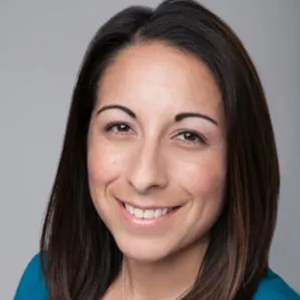
Week Overview
General Update
The 2022 legislative session began on Monday, January 10th. This is a short session, so it is only scheduled to go for 60 days, ending on March 10th. As a reminder, Washington runs on a two- year (biennial) cycle. While short sessions typically are focused on making mid-biennium adjustments to the budget for urgent and emergent issues, given the continued significant increase in revenue as projected by the Economic and Revenue Forecast ($3.6 billion increase in the current biennium compared to when the budget passed last spring, and $4.1 billion increase in the 2023-24 biennium. There is also about $1 billion remaining in federal ARPA dollars that remain), we anticipate seeing more budget activity than we normally would expect in a short session.
There was also a larger than normal number of pre-filed bills that were introduced prior to the start of session. While it is normal for there to be bills that are pre-filed throughout December, the number of bills introduced prior to the first day of session was around 700. For perspective, during the entire 2021 legislative session, which is a long session, just over 1,100 bills were introduced. So, to have over 700 introduced in a short session before the legislature even convenes was unique.
The House and Senate held their opening ceremonies on Monday. While there is normally a bit of fanfare around the first day of session, with the legislature convening in a mostly virtual format again due to the ongoing COVID-19 pandemic, the energy was more muted. Work immediately got underway as committees started convening for bill hearings and work sessions.
On Tuesday, Governor Inslee delivered his State of the State Address where he urged legislators to take “Action…this Day” on a number of crucial issues such as homelessness and housing, climate change and protection for salmon. In his speech, Inslee acknowledged the more than 10,000 Washingtonians that have lost their lives to COVID-19, and thanked frontline workers, educators, and childcare workers for their ongoing service.
Senator Gildon (R-Puyallup) provided the Republican perspective heading into the 2022 legislative session. The speech focuses on balance of government, limiting emergency powers, taxes, and addressing crime rates.
With the rapidly rising hospitalization rates due to the Omicron variant surge in Washington State, Governor Inslee announced to assist hospitals with staff shortages he has called up 100
National Guard personnel to deploy to hospitals in Everett, Yakima, Wenatchee, and Spokane. Guard personnel will also be sent to set up testing centers in Olympia, Richland, Seattle, and Tacoma. To alleviate the demands on hospitals, and increase capacity, they will temporarily suspend nonurgent procedures. This week, The Washington State Department of Health will release details about their portal for rapid in-home delivery of COVID tests through Amazon.
Click here to watch this week’s TVW Week in Review, which provides a good wrap-up of the past week in Olympia.
Electeds & Elections
Simon Sefzik of Ferndale has been named to replace the late Republican Sen. Doug Ericksen in the Washington Senate. Sefzik was appointed following a 4-2 vote by the Whatcom County Council and will serve the remainder of Ericksen’s term representing the 42nd District through the next general election in November. At 22, Sefzik is the youngest current senator.
As the 2022 session kicked off, several legislators announced they had tested positive for COVID. Legislators that have announced a positive diagnosis include Senators Lovick, Billig, Trudeau, Mullet and Short, and Representative Leavitt.
Session Primers
As we go through session, we will periodically do brief primers on things related to session and the legislative process. We often use jargon and things move very quickly, so our goal with these primers is to help you better understand what is going on in Olympia as we go along. If you have any questions, don’t hesitate to reach out!
How To Read A Bill
Reading a bill can be overwhelming, especially for those bill that run over 25 pages. The legislative information center provides a helpful guide on how to read a bill, but there are a few pieces I want to call out that can be the most important:
- Sponsors: The bill sponsors are listed at the top of a bill above the Sometimes it says ‘by request of…’ next to the sponsors. This will mean it’s either Governor- or agency- request legislation, depending on who is listed.
- Amending Sections: If a section of a bill starts with something like ‘RCW XXX is amended to read as follows’, that means that section of the bill is proposing to change existing These amending sections are often the cause of long bills because they can’t just list the sub-section that bill is trying to amend; they must list that entire RCW section. As you read amending sections, you want to look for two things: words that are underlined and words that are stricken out. Words that are underlined are new or updated language being proposed to that existing law. Words that are stricken out are language being proposed to be removed from existing law. It might be tempting to skip over things that are stricken out, but that can be very important.
- New Sections: If the start of a section in a bill says ‘New Section’ that means that is completely new proposed statutory language (as opposed to amending existing law).
Once bills get scheduled for a hearing, committee staff typically do a ‘bill digest’ and a ‘bill report’. These are very helpful tools to use as you review and analyze bills, especially the bill report, which provides background on the issue and usually a more in-depth summary of the legislation than the ‘bill digest’ document. These can all be found in the ‘Legislative Documents’ section of a bill page. If nothing is listed under those headings, then staff has not yet prepared them.
TVW
We are fortunate to have a great resource in Washington with TVW. This a website and an app where you can watch most things related to session including committee hearings and floor sessions. If you know when a bill is scheduled, you can watch that hearing live by going to the ‘Schedule’ and finding the hearing you are looking for. If you missed being able to watch something live, or if you want to go back and watch it again, you can go to the ‘Archives’ and search for the hearing or floor action you want to watch. TVW also does shows that highlight some of the activity in Olympia each week. Legislative Review airs daily during session and has a weekly wrap-up on Fridays (we always include the link to the weekly wrap-up in the report). Inside Olympia with Austin Jenkins provides weekly in-depth interviews with legislators and other state leaders. And The Impact provides weekly episodes that highlight big issues being discussed in Olympia. We try to highlight some of the interesting and relevant pieces from these shows when applicable, but you can always go and find them online to watch each week.
In addition to airing hearings and floor action on the TVW website, they are also available on YouTube channels for each chamber. I have found that the YouTube channels tend to be more stable and you can pause and jump back in the hearing even while it is airing live. The three different TVW YouTube channels can be found here:
House YouTube Channel Senate YouTube Channel
TVW YouTube Channel (this is where you can find things like Governor press conferences)
Priority Areas
Climate Change and the Environment
Rep Lekanoff introduced HB 1753 on behalf of the Governor, and it requires state agencies that administer funds from certain accounts created by the Climate Commitment Act to offer consultation to federally recognized tribes who tribal resources may be affected by the award of funds form the accounts. It requires applicants for funding from certain Climate Commitment
Act accounts to engage in a preapplication process with all federally recognized tribes within the project area. The bill was heard on January 13th in the House Environment & Energy committee.
Sen Nguyen and Rep Hackney sponsored SB 5722/HB 1774 on behalf of the Governor and it requires the Department of Commerce to adopt state energy management benchmarking requirements for specified tier 2 covered buildings by December 1, 2023 and rules for performance standards by December 31, 2030. It also requires Commerce to evaluate benchmarking data to determine energy use and greenhouse gas emissions averages for building type by July 1, 2029. SB 5722 was heard on January 13th in the Senate Environment, Energy & Technology committee. HB 1774 has been referred to the House Environment & Energy Committee but has not been scheduled for a hearing.
Rep Ramel and Sen Liias introduced HB 1767/SB 5666 on behalf of the Governor, and it authorizes the governing body of municipal electric utilities and public utility districts (PUD) to adopt a targeted electrification plan that establishes a finding that utility outreach and investment in the electrification of customers’ end use equipment in residential and commercial buildings will provide net benefits to the utility or PUD. It authorizes municipal electric utilities and PUDs, upon the adoption of a targeted electrification plan, to offer incentives and establish other programs to accelerate the targeted electrification of homes and buildings for their customers. HB 1767 is scheduled for a hearing on January 18th and is scheduled for executive session on January 20th in the House Environment & Energy committee. SB 5666 is scheduled for a hearing on January 19th in the Senate Environment, Energy & Technology committee.
Housing
Accessory Dwelling Units (ADUs)
Rep Gregerson sponsored HB 1337, which originally incentivized the development of accessory dwelling units (ADUs). The bill was introduced in the 2021 session but did not pass so has been reintroduced. A proposed substitute bill was heard in the House Local Government committee on January 12th, and it requires cities and counties to adopt 14 specified requirements related to ADUs within urban growth areas, except to the extent that doing so would violate any existing laws or regulations related to public or environmental health, safety, or welfare. It also exempts action taken by cities and counties in complying with the provisions of the bill from challenges under the GMA and SEPA. The bill is scheduled for executive session on January 21st.
Rep Shemake and Sen Liias introduced HB 1660/SB 5648, which prohibits owner occupancy requirements from being imposed on a lot with an ADU unless an ADU on the lot is being used for short-term rental, and sets deadlines for local jurisdictions to comply with this prohibition. HB 1660 was heard on January 12th and is scheduled for executive session on January 21st in the House Local Government committee. SB 5648 has been referred to the Senate Housing & Local Government committee but has not been scheduled for a hearing.
Rep Pollet sponsored HB 1711 and it allows cities and counties to offer incentives for the development of ADUs, including the waiver of fees, deferral of taxes, or waiver of regulations, if the ADUs are subject to binding commitments that they will not regularly be offered for short term rental and there is a program to audit compliance with the commitments. The bill was heard on January 12th and is scheduled for executive session on January 21st in the House Local Government committee.
Rep Walen introduced HB 1841, which allows for the construction of an ADU to be exempt from the property tax for the duration of time the ADU is rented to a low-income household. It is scheduled for a hearing on January 20th in the House Finance committee.
Condos
Sen Gildon introduced SB 5758 and it directs the Housing Finance Commission to create a condo conversion tenant-to-homeowner program to assist tenants in multifamily buildings purchase a condo in buildings that are being converted to condo ownership. Income eligibility and other requirements for the condo conversion tenant-to-homeowner program must be based on the commission’s existing authority and similar to other homebuyer programs. The bill is scheduled for a hearing on January 18th in the Senate Housing & Local Government committee.
Encampments
Sen Kuderer introduced SB 5662 on behalf of the Governor, which creates the Office of Intergovernmental Coordination on Public Right-of-Ways Homeless Encampments (Office) within the Department of Social and Health Services. It also requires the Department of Commerce to collaborate with the Office to develop and implement a statewide effort to reduce the number of persons encamped on public rights-of-way through transitions to permanent housing solutions. The bill was heard on January 13th in the Senate Housing & Local Government committee.
Landlord Tenant Relations
Sen Kuderer introduced SB 5576 and it updates the 14-day pay or vacate notice and eviction summons to improve readability. It clarifies that for rental arrears accrued through 6 months following the end of the Governor’s state of emergency proclamation, a 14-day pay or vacate notice may not be issued until expiration of 14 days after a repayment plan is offered and the tenant fails to accept the offer. Additionally, it requires courts to accommodate virtual representation by legal counsel appointed for indigent tenants, as well as virtual participation for tenants. The bill was heard on January 11th in the Senate Housing & Local Government committee.
Sen Trudeau sponsored SB 5749, which allows tenants to pay for rent with a personal check, cashier’s check, or money order. The bill is scheduled for a public hearing on January 19th in the Senate Housing & Local Government committee.
Rep Peterson introduced HB 1904 and it limits a landlord from increasing the rent to no more than 3% above the base rent without providing a written notice between 180 and 220 days before the increase takes effect. If the landlord does increase the rent above 3%, the landlord must provide notice to the tenant and allow for the tenant to terminate the lease at any point prior to the effective date of the increase and the tenant shall only pay pro rate rent through the date upon which the tenant surrender the premises. The bill has been scheduled for a hearing on January 18th in the House Housing, Human Services & Veterans committee.
Land Use
Comp plan updates
Rep Duerr sponsored HB 1241, which increases the review and revision cycle for comprehensive plans and Shoreline Master plans from 8 to 10 years. It requires cities and counties to submit an implementation progress report with certain required information to the Department of Commerce 5 years after reviewing and revising a comprehensive plan.
Additionally, it requires counties, cities, and other local governments to consult with federally recognized tribes during the planning process under the GMA. The bill was introduced during the 2021 session but did not pass so was reintroduced. The bill was heard on January 11th, amended and passed by the House Local Government on January 14th. Amendments to the bill can be found here and here.
Rep Pollet introduced HB 1717 at it requires counties, cities, and other local governments to enter into negotiations for a memorandum of agreement on collaboration and coordination with federally recognized tribe for tribal participation in the planning process under the GMA. It requires the Department of Commerce to provide and facilitate a dispute resolution process to attempt to resolve a tribe’s concerns with a city’s or county’s comprehensive plan or development regulations, and to provide notice to a tribe of a city’s or county’s proposed adoption of a comprehensive plan upon request of the tribe. Additionally, it requires a tribe that has a reservation or ceded lands within a county to be invited to participate and cooperate in the countywide planning process. The bill was heard on January 11th, amended and passed by the House Local Government on January 14th. The amendment to the bill can be found here.
Rep Duerr sponsored HB 1099, which adds a goal of climate change mitigation to the listed goals of the GMA. It also adds a climate change and resiliency element to the list of elements that must be included within the comprehensive plans certain counties and cities must adopt under the GMA. Additionally, Commerce is required to publish guidelines that specify a set of actions counties and cities have available to take related to greenhouse gas emissions reductions and vehicle miles traveled. The bill was introduced during the 2021 session but did not pass so was reintroduced. The bill is on 3rd Reading in House Rules awaiting further action.
Missing Middle Housing
Sen Das and Rep Bateman sponsored SB 5670/HB 1782 on behalf of the Governor requires cities to incorporate into its development regulations, zoning regulations, and other official controls, authorization for the development of all missing housing types on all lots zones for detached single-family residential use and within one-half of a major transit stop. It also creates minimum average density requirements for cities based on population and directs the Department of Commerce to provide technical assistance to cities. Both bills are scheduled for a hearing on January 18th in the respective Local Government committees.
Rep Pollet introduced HB 1981 and it provides funding for all cities and counties to plan for new required elements of comprehensive plans including planning for affordable housing meeting the goals of the state to reduce our contribution to climate change. It requires the Department of Commerce to evaluate the costs for counties and cities to review and revise their comp plans and the evaluation must be completed by December 1, 2022 and updated every 5 years thereafter. Additionally, it details the types of housing per lot size that should be built in order to increase density. The bill appropriates $25 million to the Department of Commerce to provide grants to cities and counties planning for and implementing new comp plan elements. It also changes the 101% percent revenue growth limit to 103% plus population changes and inflation with a limit of 103% and increases the REET by 0.25% to provide grants to jurisdiction to implement comp plan updates. The bill is scheduled for a hearing on January 18th in the House Local Government committee.
Urban Growth Areas (UGAs)
Rep Goehner sponsored HB 1627, which allows urban government services to be extended beyond city and urban growth area boundaries to meet the needs of those living within such communities, and water, sanitary sewage systems, and storm drains may be provided to properties outside of these boundaries to protect basic public health, safety, welfare, and the environment. The GMA hearing board nor a boundary review board my hear petitions based on the existence or extension of water, storm drainage, or sewerage systems outside of a city of urban growth areas boundary. It also allows for additional development and services in limited areas of more intensive rural development, based on the needs of the people in those communities. The bill was heard on January 11th in the House Local Government committee. It was scheduled for executive session on January 14th, but no action was taken. It has been re- scheduled for executive session on January 21st.
Sen Short introduced SB 5593, which amends the current standards for jurisdictions to revise a designated urban growth area or areas to include revisions based on patterns of development. It provides that any revision to the existing boundaries of a jurisdiction’s UGA or areas may not result in an expansion of total surface area of the UGA if the revision is to accommodate patterns of development and anticipated urban growth. The bill was heard on January 12th in the Senate Housing & Local Government committee.
Long-term services
Rep Sullivan sponsored HB 1732, which delays the collection of premium assessments under the long-term services and supports trust program until July 1, 2023, delays the availability of approved services under the trust program until July 1, 2026, and allows persons born before January 1, 1968, who do not meet the 10-year minimum for paying Trust program premiums to receive partial benefits based on the number of years of premium payments. The bill was heard on January 11th, amended and passed by the House Appropriations Committee on January 13th. A summary of the amendment can be viewed on the last page here. It has been referred to the House Rules committee and awaits further action.
Rep Paul introduced HB 1733, which establishes exemptions from the payment of premiums under the long-term services and supports trust program for certain veterans, spouses and registered domestic partners of military service members, nonimmigrant temporary workers, and employees who work in Washington and maintain a primary residence outside of Washington. The bill was heard on January 11th, amended and passed by the House Appropriations Committee on January 13th. A summary of the amendment can be viewed on the last page here. It has been referred to the House Rules committee and awaits further action.
Unemployment insurance, family leave, and medical leave payments
Sen Keiser and Rep Berg introduced SB 5873/HB 2031, which lowers employees premiums for the Paid Family and Medical Leave (PFML) program to last year’s level. It would also lower unemployment insurance (UI) premiums for all employers and in 2023 it would target additional relief to small businesses. SB 5873 has been referred to the Senate Ways & Means Committee but has not yet been scheduled for a hearing. HB 2031 has not yet been referred to a committee.
Transportation
The Governor’s 2023-2025 supplemental transportation budget proposes significant new spending in transportation in the hopes we will emerge from the pandemic stronger and more resilient. The supplemental transportation budget focuses new investments in clean transportation, ferry reliability, preservation, and increasing diversity, equity, and inclusion in transportation. These new investments are paid for from the following new revenues resources:
- $123 million from the Climate Commitment Act (CCA) to support clean transportation
- $363 million from the Federal Infrastructure Investment and Jobs Act (IIJA) assumed to be spent over 3 years to support preservation, EV infrastructure and new bikeway programs.
- $384 million one-time General Fund transfer to the transportation budget assumed to be spent over 3 years to support ferry capital and operating as well as ultra-high-speed ground
- $500 million from American Rescue Plan Act (ARPA) funds to support SR 520 and I- 405/SR 167
Links to transportation budget documents:
Governor’s proposed transportation budget – highlights Governor’s proposed transportation budget – bill
Transportation Revenue
The Seattle Times ran a story Thursday with the headline “Washington Democrats and Republicans want to spend more on transportation. But what will the Legislature get done?” The article noted that Sen. Marko Liias, the Senate Transportation Chair, will not propose raising taxes on gas, but believes the Legislature could produce $12 billion to $15 billion for transportation projects by using federal dollars, revenue from the carbon pricing passed last year, and a shift from the state general fund. His House counterpart, Rep. Jake Fey, was more circumspect, according to the Times, about the chance of a package, noting that a session 60-days long doesn’t give much time nor are the House Republicans that open to it.
Looking Ahead
This week will see more public hearings and movement of bills out of committee.
Upcoming Dates:
- February 3rd – House of Origin Policy Cutoff
- February 7th – House of Origin Fiscal Cutoff
- February 15th – House of Origin Floor Cutoff
- February 24th – Opposite House Policy Cutoff
- February 28th – Opposite House Fiscal Cutoff
- March 4th – Opposite House Floor Cutoff
- March 10th – Sine Die












